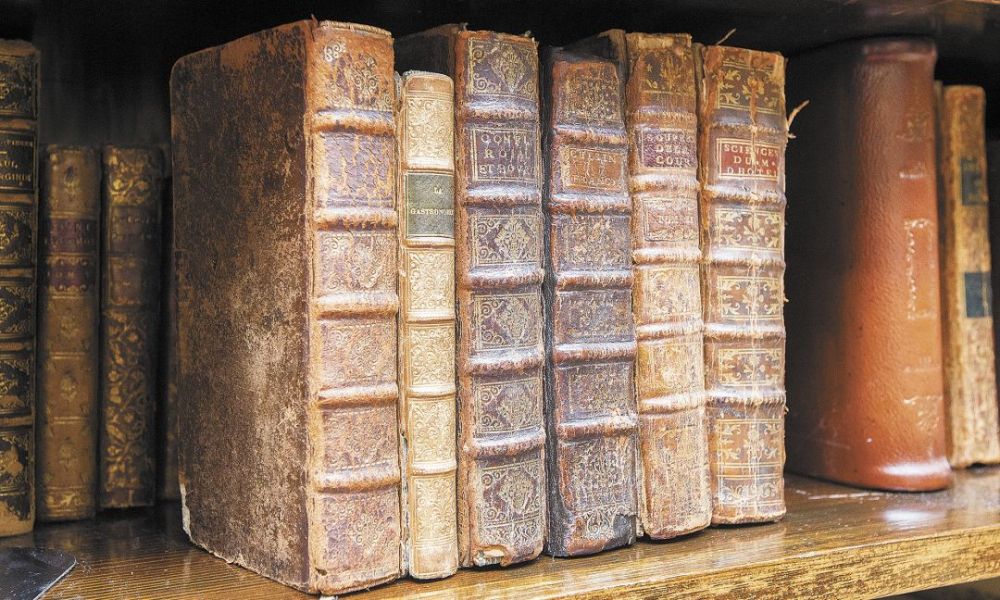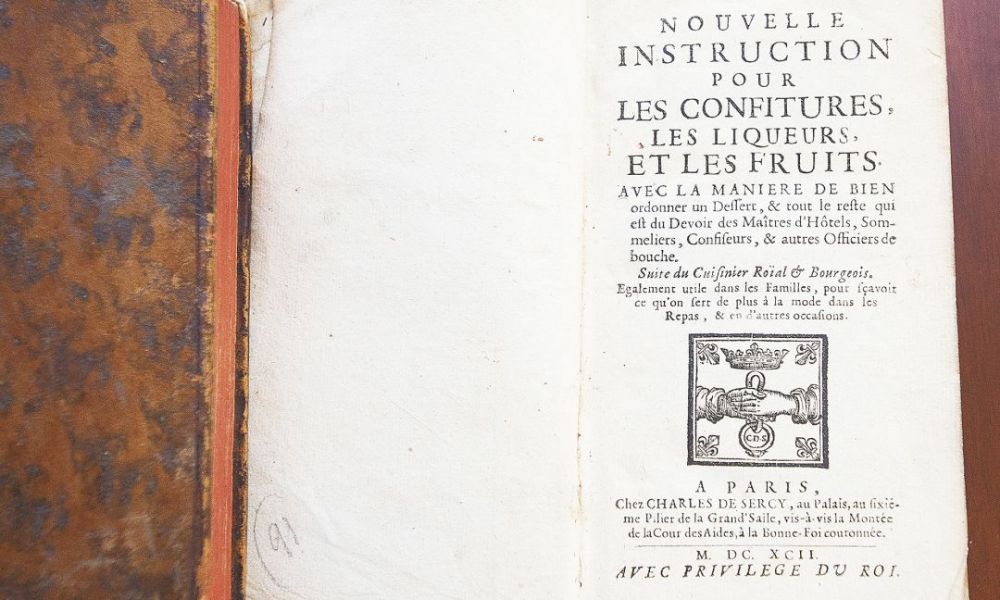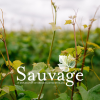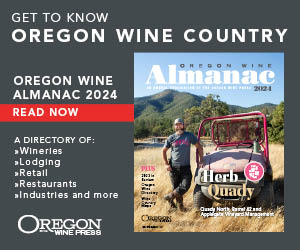Words to Cook By
Rare books a foundation of French cuisine
It’s not often you can arrange a small gathering of interesting people who would otherwise probably never meet, much less interact up close and personal. Yet just such an opportunity recently arose for this writer.
My wife, Regina, and I have had the pleasure of getting to know Jacques Rolland and his wife, Liz. They own A’ Tuscan Estate, a stunning bed and breakfast on N.E. Evans Street in McMinnville, which makes them our neighbors. What’s more, when Regina worked in retail on Third Street, she sold them some décor items that grace their stately inn, which they have operated since 2005.
I wrote a story about Jacques Rolland a while back. Besides being a highly skilled chef and consummate host, he is also the author of three books on food and wine.
“The Food Encyclopedia,” published in 2006, is an exhaustively researched reference book featuring more than 8,000 entries and 500 photographs. From arugula to zucchini, the compilation explains how comestibles can best be incorporated into various recipes.
Two years later, he published “The Cook’s Essential Kitchen Dictionary: A Complete Culinary Resource.” It features definitions for 4,300 terms, thus combining history, etymology and the culture of food.
Not content with covering the basics of cuisine, Rolland then turned his attention to wine. In 2013, he published the 325-page “C’est le Vin,” French for “That’s wine.” It’s a challenge to find an obscure wine, location or technical term overlooked in this comprehensive book.
Given such skill, experience and creativity, you can imagine the exceptional table set by Jacques and Liz Rolland for their B&B guests. On more than one occasion, we have been invited to enjoy their fabulous food and superb service. The couple’s collection of fine antique furnishings, décor and collectibles further enhances the experience. Here’s just one example:
Consider these four sizable items, all of glistening, solid copper — a deep sea diver’s helmet, a Prohibition-style pot still, a manual water pump and a pair of milk cans. Rolland has found eclectic pieces in such faraway places as Argentina.

Then there are the books.
He treasures the printed word in many forms and genres. Among the numerous highly collectible books in his personal library is a first edition of selected works by famed writer/philosopher François-Marie Arouet, better known as Voltaire.
He also owns a first edition of “Memoires de Monsieur D’Artagnan: Capitane de la premiere Compagnie des Monsquetaires du Roi.” If you haven’t already guessed, this is a memoir supposedly written by D’Artagnan, Alexandre Dumas’ fourth musketeer. The subtitle translates, “Captain of the First Company of Musketeers of the King.”
Rolland is especially proud of his collection of old French cookbooks, dating back to the late 17th century. It includes two books written by Marie-Antoine Careme, the acknowledged father of French cuisine — coincidentally, a contemporary of Voltaire.
This brings us to the other couple who completed the count of six involved in this rather unusual and most interesting Sunday afternoon. Phillip Pirages is a nationally known antiquarian bookseller who just happens to make his home in McMinnville.
His profession is as rare as the ancient tomes and manuscripts in which he deals. Only a handful of people worldwide successfully navigate this field on the international level. A doctor of philosophy and prominent member of the Antiquarian Bookseller Association of America, he needs no more than the name Phillip J. Pirages on the cover of his 260-page catalog.
His wife, Ellen Summerfield, drew the couple to McMinnville when she was named director of international programs at Linfield College in 1984. It was then that Pirages, who had been dabbling in rare books on the side, plunged into the trade on a full-time basis.
The catalyst for our little gathering at A’ Tuscan Estate was, of course, Rolland’s rare books and Pirages’s expertise in them. My idea was simply to bring the two together and write a story about the expert’s evaluation of the B&B owner’s collection. But Rolland insisted we do so over brunch with wives in attendance. What a far better idea than merely leafing through the books, no matter how rare, interesting or valuable.
As it turned out, all of the above worked out well beyond expectations.
First, Jacques and Liz have brunch down pat — so much so that the four of us felt as if we were dining in a Michelin three-star restaurant. To begin, an enticing fromage blanc in heavy cream, with fresh raspberries, strawberries and blueberries, was placed before us. Apple turnovers and croissants with butter and raspberry jam and accompanied. Sparkling framboise blanc was the paired aperitif.
The piece de resistance was Quiche au Rolland, a perfectly prepared dish featuring Gruyère cheese and black truffles with white truffle salt. Jacques paraded out an ostrich egg of near-football size, proclaiming this as the dish’s foundation. And Liz poured Italian dark-roast coffee throughout.
That brings us back to the books, six in all, which have served as an ongoing inspiration for Rolland.
The collection includes two 1795 copies of the “Cuisinier Royale,” by the legendary Careme, along with a pair of Menon works, one from 1755 on the art of discerning the heart or core of different types of foods and one from 1776 on the science of cake and pastry decoration with sugar. Rounding out the books are “Cuisinier Francois,” written in 1712 by Francois Pierre de la Varenne, who provides his own take on fine food, and “Nouvelle Instruction pour Les Confitures, Les Liqueurs et Les Fruits,” a 1692 work expounding on preserves, syrups and extractions.
Rolland explained that since there was no refrigeration in those early days, preservation of foods was of paramount concern to cooks; thus, much effort was put into finding ways to best achieve that end.
“The work of these chefs was an essential part of the foundation of great French cooking,” he said. “Books such as these put what they learned into published words and carried that knowledge forward.”
Upon examination of the time-honored tomes, Pirages proclaimed them to be, indeed, very rare and valuable. He noted that all are in quite good condition, considering their age. Rolland was delighted to discover that one had sold for $10,000 and two others for $2,600 each in recent transactions.



 Karl Klooster is the associate editor of the Oregon Wine Press and writes a wine column for the
Karl Klooster is the associate editor of the Oregon Wine Press and writes a wine column for the 






